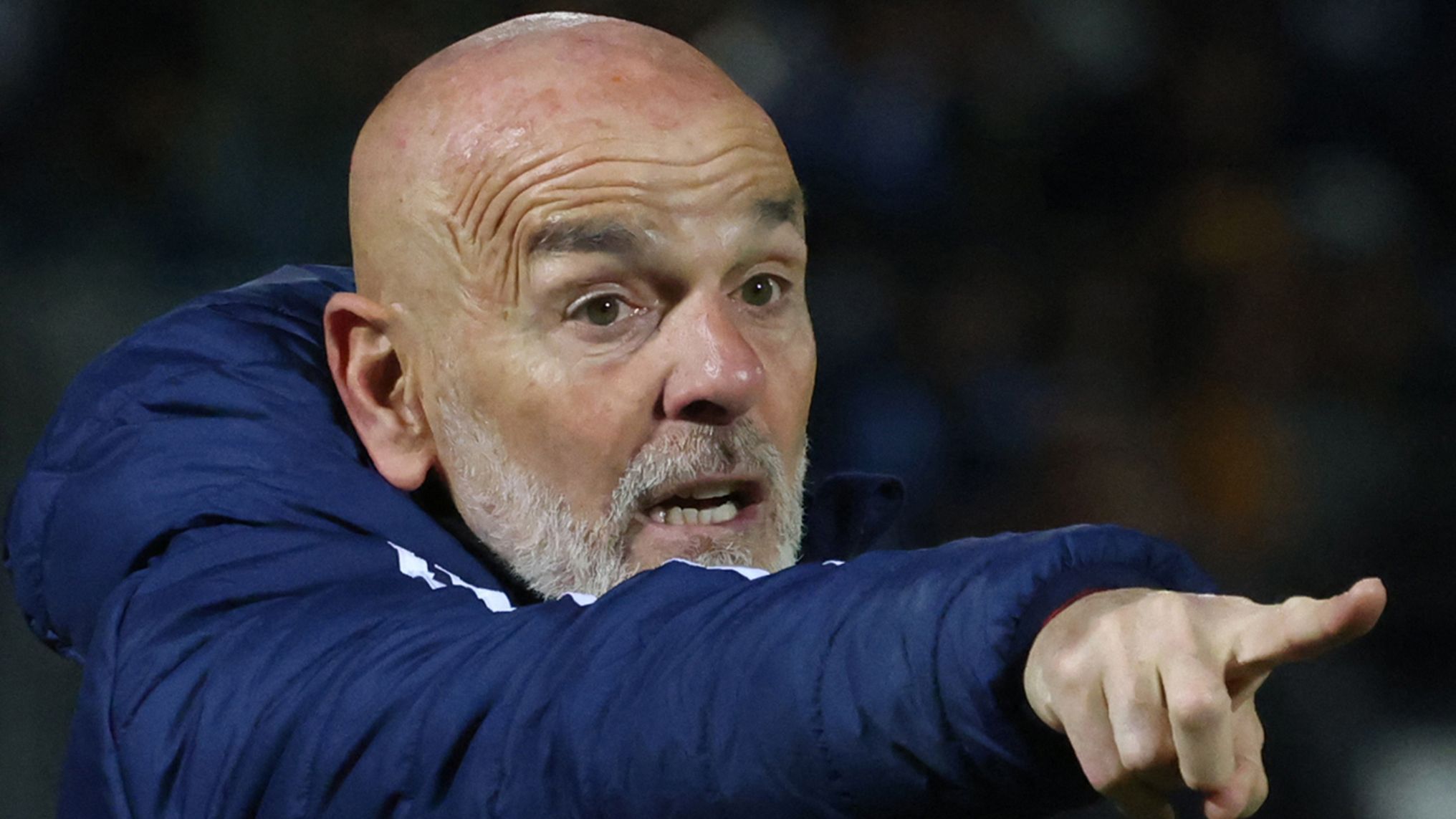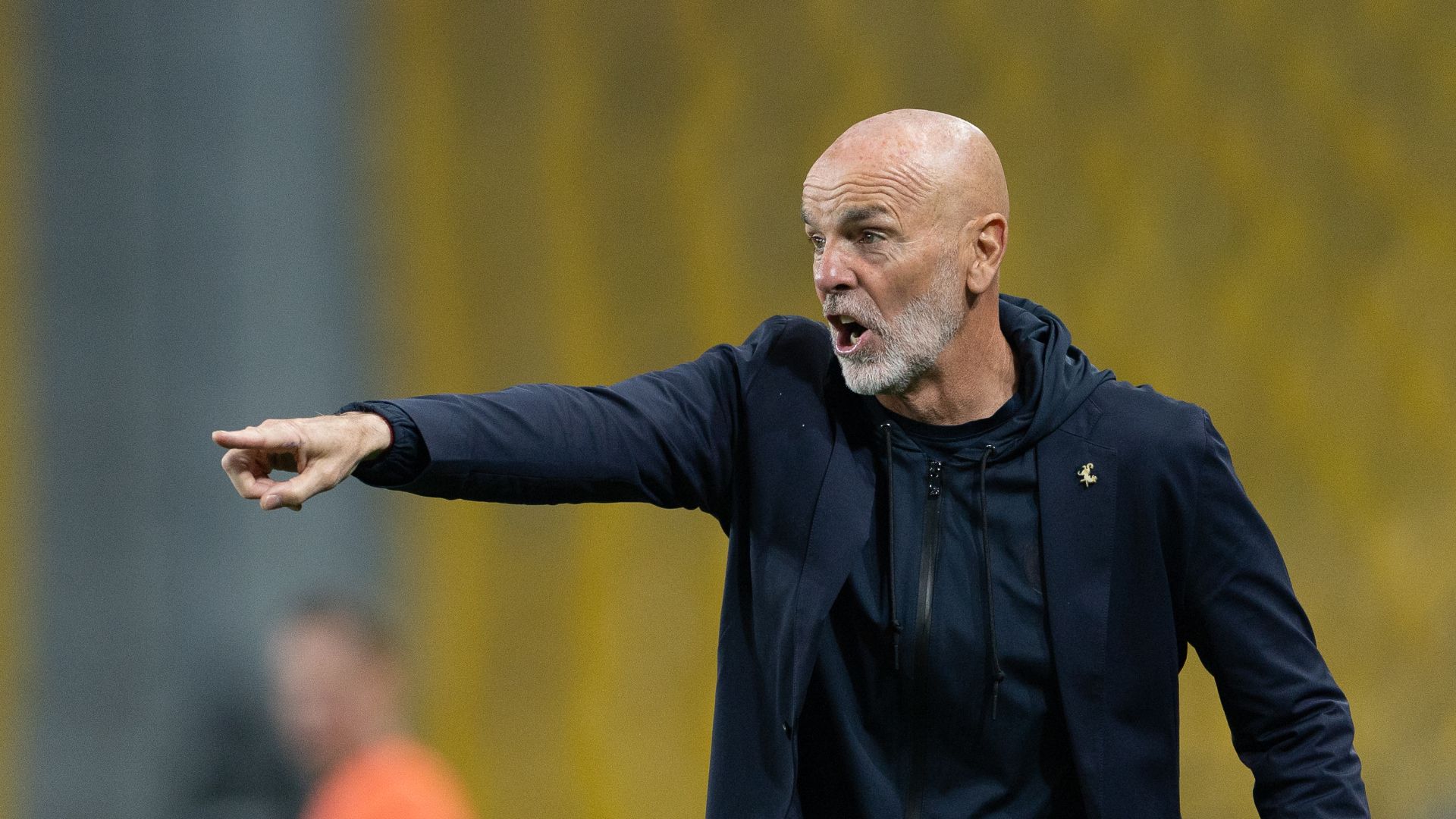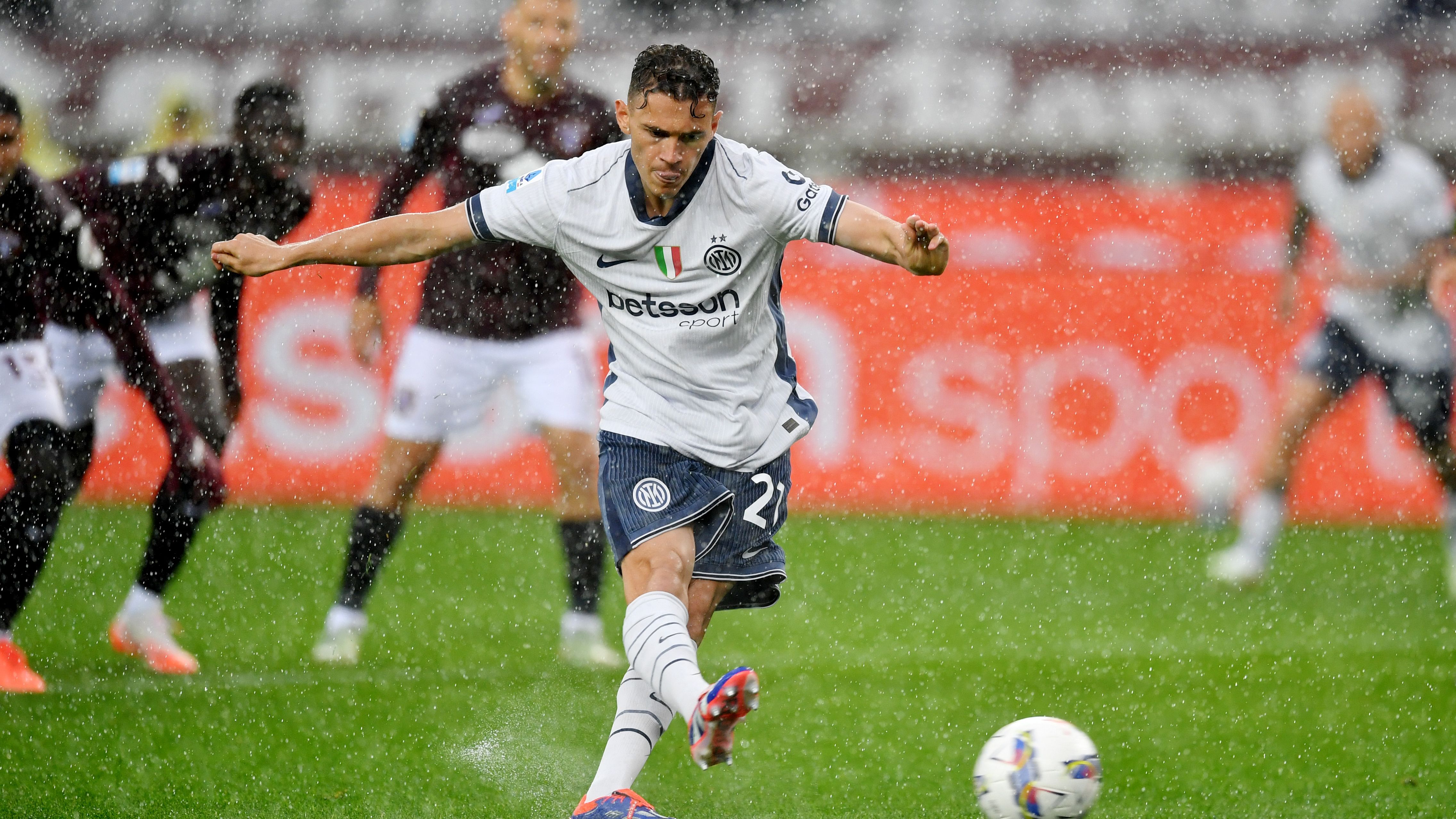Stefano Pioli’s Pursuit of Greater Challenges in Serie A
Stefano Pioli, the seasoned Italian coach, has made a bold move back to Italy’s top league, seeking the thrill of high-stakes competition that he found lacking abroad. In a revealing discussion, he shared insights into his decision to leave his post after a brief stint, highlighting his eagerness for more demanding roles that promise deeper fulfillment.
- Pioli opens up about departing Al-Nassr in search of tougher opportunities
- The experienced 59-year-old expresses unprecedented readiness to re-enter Serie A
- Stefano’s official unveiling by Fiorentina occurred on Tuesday



Pioli’s Official Start with Fiorentina and Reflections on His Saudi Experience
On Tuesday, the club formally announced Stefano Pioli as their latest head coach, committing to a three-year agreement. When questioned by journalists about his abrupt departure from Saudi Arabia following only one campaign, the ex-Al-Nassr leader spoke fondly of his Middle Eastern adventure yet confessed to yearning for the intense competition and demands inherent in Serie A management.
Challenges Faced at Al-Nassr
Pioli stepped into the role at Al-Nassr in September 2024, taking over from Luis Castro amid an underwhelming beginning to the year. Despite his efforts, the 59-year-old encountered limited triumphs. Over the 2024-25 season, he couldn’t secure any trophies, ending up in third place in the Saudi Pro League and suffering losses in both the King’s Cup and the AFC Champions League, much like failing to reach key milestones in a marathon race.
Pioli’s Proven Track Record in Italy
Before his Middle Eastern interlude, Pioli had steered Fiorentina from 2017 to 2019 and then achieved notable success at AC Milan, clinching the 2021-22 Scudetto. Now, he’s back at the helm of La Viola, ready to build on his past accomplishments and inject fresh energy into the team.
Pioli’s Motivation for Returning to Serie A
During his initial media session upon his comeback, Pioli elaborated on his choice to exit Al-Nassr and embrace Serie A once more. He reflected on how exploring a different culture enhanced his adaptability, but ultimately, an intense longing for more rigorous challenges that could yield profound rewards drove him back.
“Exposure to a fresh environment has boosted my versatility immensely. Yet, I’ve always harbored a strong urge to tackle scenarios filled with added intensity, ones that offer even more substantial achievements,” he explained.
Deep-Rooted Connection to Fiorentina
The ex-AC Milan tactician also touched on his profound affection for Fiorentina, emphasizing a lasting link to the club. “The essence of Florence resonates within me… My connection to this team is incredibly deep; returning felt like the perfect path forward,” he shared.
Future Plans and Squad Enhancements for Fiorentina
With his attention now fixed on gearing up Fiorentina for the upcoming 2025-26 season, Pioli is concentrating on revitalizing the squad following a lackluster previous year. The team is vigorously pursuing reinforcements during the current transfer period, having already brought in the young Swiss defender Eman Kosp, aged 18, from Barcelona. Rumors also swirl about their interest in acquiring Inter’s sidelined midfielder Kristjan Asllani, valued at €18 million, to strengthen their midfield options.
Stefano Pioli’s Career Shift: From Saudi Arabia to Serie A Revival
Background on Stefano Pioli’s Coaching Tenure
Stefano Pioli, the esteemed Italian football manager, has long been recognized for his tactical prowess and ability to transform teams in competitive leagues. Before his stint in Saudi Arabia, Pioli built a solid reputation in Serie A, managing clubs like AC Milan, Lazio, and Inter Milan. His time at AC Milan, in particular, stands out as a period of significant success, where he led the team to a Serie A title in 2022, showcasing his expertise in developing young talents and maximizing team performance.
Pioli’s move to Al-Nassr in Saudi Arabia marked a new chapter, especially as he stepped in as Cristiano Ronaldo’s coach. The role placed him at the helm of a star-studded squad, with Ronaldo as the focal point, offering high-profile matches in the Saudi Pro League. However, Pioli’s decision to leave Saudi Arabia for a Serie A return highlights the evolving dynamics of a coach seeking greater challenges and deeper satisfaction in his career.
Reasons Behind Pioli’s Exit from Saudi Arabia
One of the primary drivers for Stefano Pioli’s departure from Al-Nassr was his pursuit of greater challenges that align with his coaching philosophy. While managing a team with a global icon like Cristiano Ronaldo provided exposure and resources, Pioli expressed in interviews that the Saudi Pro League, though growing, didn’t fully satisfy his hunger for the intense rivalries and tactical depth found in Serie A. This return to Italy represents a strategic move to re-engage with the competitive edge that defines European football.
- Key factors influencing the decision:
- Limited opportunities for tactical innovation in a league still developing its structure.
- A desire to work within a familiar cultural and footballing environment that fosters player development.
- The allure of high-stakes matches against teams like Juventus, Inter, and AC Milan, which offer the kind of pressure and excitement Pioli thrives on as Cristiano Ronaldo’s former Al-Nassr coach.
Pioli’s candid reflections on his time in Saudi Arabia emphasize a need for personal growth. He mentioned in media discussions that, despite the financial incentives and working alongside stars like Ronaldo, the role felt somewhat isolated from the broader European football narrative. This sentiment underscores a broader trend among coaches who prioritize long-term legacy over short-term gains.
The Allure of Returning to Serie A for Greater Satisfaction
Serie A has always been a breeding ground for managerial excellence, and Pioli’s return signifies his intent to seek greater satisfaction through impactful leadership. As a coach who previously guided AC Milan to glory, Pioli is eager to dive back into the Italian league’s rich history and passionate fanbase, where every match feels like a story waiting to unfold.
In seeking greater challenges, Pioli aims to tackle the evolving landscape of Serie A, which now features a mix of seasoned veterans and emerging talents. His experience as Cristiano Ronaldo’s former Al-Nassr coach equips him with insights into managing high-profile players, a skill that could prove invaluable in Italy. For instance, Pioli’s strategies at Al-Nassr involved balancing Ronaldo’s individual brilliance with team dynamics, a lesson he can apply to Serie A clubs looking to compete at the highest level.
- Benefits of Pioli’s Serie A comeback:
- Enhanced opportunities for coaching innovation in a league known for its defensive tactics and strategic depth.
- Potential to mentor young Italian players, fostering the next generation of Serie A stars.
- Increased visibility in European competitions, such as the Champions League, which offers more prestige than the Saudi Pro League.
Pioli’s move also reflects a personal quest for satisfaction. He has spoken about the fulfillment derived from building cohesive teams in familiar settings, where the cultural nuances of Italian football resonate with his own background. This shift away from Saudi Arabia isn’t just about professional aspirations; it’s about rediscovering the joy in everyday coaching routines, from training sessions to match-day atmospheres.
Impact on Al-Nassr and Cristiano Ronaldo’s Team Dynamics
Pioli’s departure from Al-Nassr has sparked discussions about its effects on the team’s dynamics, particularly with Cristiano Ronaldo at the forefront. Under Pioli, Al-Nassr saw improvements in structure and performance, but his exit leaves a void in leadership that could influence Ronaldo’s effectiveness on the pitch.
- Potential repercussions for Al-Nassr:
- A need to adapt strategies without Pioli’s tactical expertise, which was crucial in integrating Ronaldo’s style.
- Challenges in maintaining team morale and consistency in the Saudi Pro League.
- Opportunities for new coaches to bring fresh ideas, potentially elevating the league’s global standing.
This transition highlights how coaches like Pioli, as Cristiano Ronaldo’s former Al-Nassr coach, play a pivotal role in shaping player performance and team identity. Ronaldo, known for his winning mentality, may now face adjustments, but Pioli’s legacy in Saudi Arabia includes laying a foundation for sustained success.
Future Opportunities and Challenges for Pioli in Serie A
Looking ahead, Stefano Pioli’s return to Serie A opens doors to new opportunities, including potential roles at top clubs seeking experienced managers. His track record, combined with the lessons from his Saudi Arabia tenure, positions him as a coach capable of handling greater challenges in a league that’s increasingly competitive.
- Areas where Pioli can make an immediate impact:
- Implementing high-press tactics and player development programs to boost team performance.
- Navigating the financial and transfer market intricacies of Serie A for strategic squad building.
- Balancing the demands of domestic and international competitions to achieve long-term success.
As Pioli seeks greater satisfaction, his journey back to Italy serves as an inspiration for other coaches weighing international moves. By focusing on personal and professional alignment, he exemplifies how returning to one’s roots can reignite passion in a career filled with highs and lows. This narrative not only enriches the story of Stefano Pioli’s career but also adds depth to the ongoing evolution of football management in leagues like Serie A.









